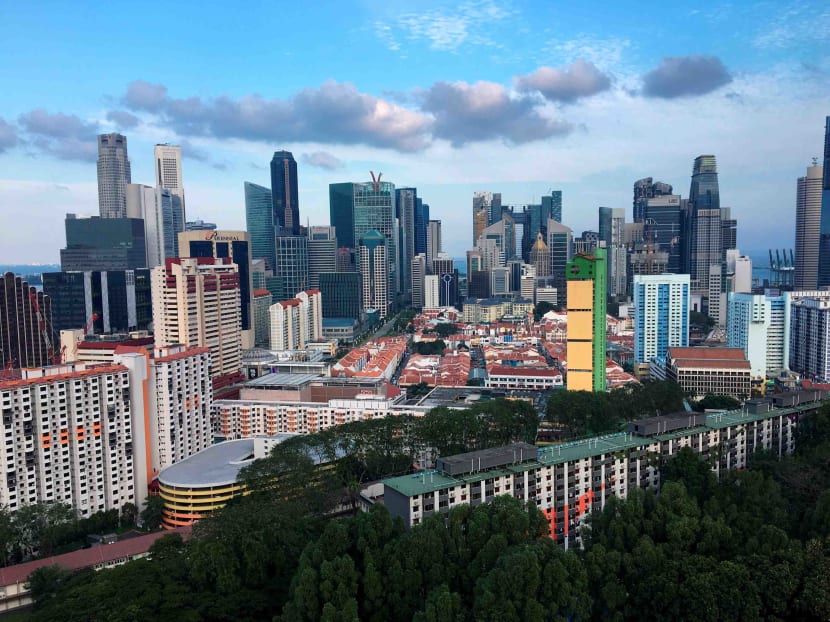Rigorous processes, ‘value for money’ reviews guide government spending: Lawrence Wong
SINGAPORE — To maximise value from limited resources and manage spending prudently and efficiently, the Government looks for new ways to “do more with less”, as well as value-for-money and innovative solutions.
SINGAPORE — To maximise value from limited resources and manage spending prudently and efficiently, the Government looks for new ways to “do more with less”, as well as value-for-money and innovative solutions.
At the Ministry of Finance’s Committee of Supply debate in Parliament on Tuesday (March 6), Second Minister for Finance Lawrence Wong said that the Government has put in place various systems and controls to ensure that “monies are spent as effectively as possible” through various frameworks, processes and reviews.
For instance, for large infrastructure projects, there is a “gateway process”, which is a rigorous multi-stage process that scrutinises the requirement, scope and design of the projects at key milestones before funding approval. This includes reviews by senior public officers, academics and industry practitioners with deep technical expertise.
Then, for government programmes, the Finance Ministry works with the various agencies to conduct “value-for-money” reviews to assess if the programmes are achieving their intended outcomes in a cost-efficient manner. Best practices, guidelines and case studies from these reviews are shared across the public service, Mr Wong said.
Getting value for money goes beyond cutting costs, he said, adding that it is about creating greater value “while we carefully manage the costs”.
‘SYSTEMS APPROACH’ FOR INFRASTRUCTURE PROJECTS
Addressing the country’s rising infrastructure needs, he said that the Government has stepped up efforts to manage spending in this area.
There is a “systems approach” when projects are planned and designed. This means that each project is not viewed in isolation, but considered in terms of how they affect one another, and this allows for better outcomes or savings.
One example is the integration of the Tuas Water Reclamation Plant under national water agency PUB and the Integrated Waste Management Facility under the National Environment Agency (NEA), which optimised land use.
The breakdown of food waste from NEA’s facility with used water sludge from PUB’s facility generates more biogas, enhancing energy production. This allows both facilities to be self-sufficient in energy and they also get to share common administrative facilities, among other synergies.
In illustrating how government agencies “do more with less” and make use of technology to “enhance work effectiveness while achieving manpower savings”, Mr Wong told the House about the Parking.sg mobile application. It was launched in October last year and jointly developed by the Government Technology Agency of Singapore, the Housing and Development Board, and the Urban Redevelopment Authority.
About 250,000 vehicles have used the app on more than two million parking sessions, he disclosed. The move did away with parking coupons, and the app is a “quick and convenient way” to pay for short-term parking.
SURPLUS GIVEN BACK IN DIFFERENT WAYS
Turning to a suggestion by Member of Parliament Azmoon Ahmad to share more of the financial year’s unexpected budget surplus with Singaporeans, Mr Wong replied that the entire additional surplus of S$7.7 billion is given back to all Singaporeans in different ways, and “not just through the S$700 million SG Bonus”.
Singapore is expected to see an overall budget surplus of S$9.6 billion for the year ending March 31. This is more than the official estimate of around S$1.9 billion, due to exceptional statutory board contributions and higher stamp duty collections as a result of the recent pick-up in the property market.
Mr Wong explained that the S$5 billion set aside for the new rail infrastructure fund to build future MRT lines, for instance, will benefit all MRT commuters. Another S$2 billion is for subsidies on the Central Provident Fund’s ElderShield insurance premiums and other related support, he said, reiterating what Finance Minister Heng Swee Keat had said in his Budget speech last month.
“You have to look at the surplus in totality. We don’t save the surplus, we give back to society but in different forms,” Mr Wong said.







